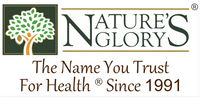While honey has long been prized for as a natural sweetener and staple in your pantry, in recent years, the honey industry has been flooded with adulterated honey of an unknown origin. Some honey from the top suppliers have been filtered out for their pollen, causing suppliers to be unable to verify the origin of the product.
Furthermore, samples of these imported honey have also shown to be contaminated with illegal substances or replaced with rice, cane or fructose corn syrup. This made suppliers and consumers alike to be concerned about the origin and safety of their food products.
Thus, consumers have started turning to organic honey for better food safety and assurance. As organic honey tends to be more regulated and audited due to their certification process, consumers can be more assured that their honey comes from pure and authentic sources.
What Makes Honey Organic?
Having certified organic honey is not as simple as it sounds. One colony of bees can harvest up to 50-100 jars per year, and bees can forage up to 12km to harvest nectar from surrounding plants. As organic honey comes from bees collecting nectar from organic lands, this is only feasible in certain countries in the world such as Brazil, Mexico and New Zealand. Other countries where beekeepers are surrounded by non-organic farmland like the US and UK has little to no truly organic honey.
However, with this regulation, organic honey can be one of the most pure sources of honey in the world. In turn, this increases the food safety of your honey source, thereby increasing the price and value for organic honey.
Furthermore, organic honey and often the beehives also do not contain any type of pesticides or artificial chemicals. In the industry, it is common for beekeepers to apply antibiotics to the beehives to prevent the rise of any bacterial infection that causes illness to the bee larvae and hives. Organic honey of course prohibits this practice.
Organic bee farms also ensure that beehives are made from natural materials as a home for the bees. Often beehives are made from wood, but must be untreated so that they do not contain chemicals.
At organic bee farms, beekeepers also do not feed their honey bees sugar syrup as a source of food. After harvesting most of the bees’ honey, the bees still need a source of food and energy which is honey that has been made and stored in the hives. Some non-organic beekeepers use a cheaper source of sugar syrup to feed their bees, while keeping the honey for commercial production. Working with organic bee farms means that beekeepers are more mindful of sustainable bee farming and help to keep their bees happy and healthy through natural means.
The good news is that the adherence to organic beekeeping is not only good for us as consumers, but also for the bee population. Using antibiotics on bees can affect their gut microbiome and chemicals, and the use of sugar syrup also affects their health and the overall sustainability of the bee population. All these factors can also in turn affect our health as humans when we consume the honey that these bees produce.
Where to Find Organic Honey?
Due to the high regulation of true organic honey, most of their sources come from more forested, untouched land areas in Brazil, Mexico and New Zealand. Because of the nature of this, organic honey may command high prices, due to a smaller supply of it.
Do make sure to check the labels of your organic honey brand to verify where it comes from, what goes into it and the organic certification.
- Organic certification
- Country of Origin
- List of ingredients
Go Organic with Nature’s Glory Organic Honey from New Zealand
For Nature’s Glory, we obtain our organic honey from New Zealand. We are especially proud of our Manuka honey, which is certified organic by Agriquality New Zealand (IFOAM Accredited). We offer both Organic New Zealand Manuka Honey Bioactive 15+ Nature's Glory and Organic New Zealand Manuka XO Honey Bioactive 30+. Harvested in conserved land in the South Island of New Zealand, Manuka honey contains high antibacterial properties that help against colds, coughs, gum disease, stomach health, wounds and ulcers.
With a high total activity of TA15+ and TA30+, our Manuka honey has above average amounts of antibacterial activity. Furthermore, our bees are not fed sugar or antibiotics, no pesticides or additives are used and no heat pasteurisation is done. The honey is lightly filtered into amber coloured jars to protect the integrity of the honey and remains a high quality, nutrient-rich honey for consumers.
Alternatively, our Organic Wilderness Honey, Organic Dew Honey and Organic Lemon Honey are also both certified organic by NASAA - one of Australia’s organic certifying bodies.
Organic Wilderness honey is harvested from plants such as blue Borage and clover, Manuka, Pohutukawa, Tawari, Kamehi and Rafa -- full of antibacterial properties, trace minerals and good against stress, fatigue, cough, cold, and sore throats.
For Organic Lemon Honey, lemon juice is mixed with our Organic Wilderness honey as a great source for vitamin C and antioxidants for better health and immunity. The honey is harvested from plants such as blue Borage and clover, Manuka, Pohutukawa, Tawari, Kamehi and Rafa -- full of antibacterial properties, trace minerals and good against stress, fatigue, cough, cold, and sore throats.
For our Organic Dew Honey, it is dark coloured, prebiotic-rich honey that promotes friendly bacteria in your gut. The honey is derived when aphids which suck on the sap of plants, forming a layer of misty sweet dew on the plants - hence the name “dew honey”.
When in doubt, always choose organic!

